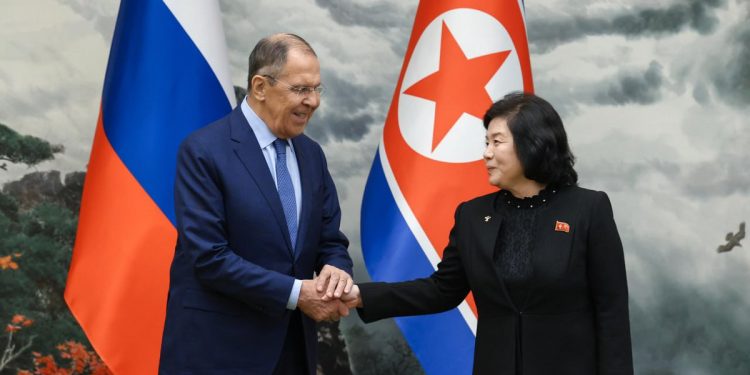North Korea’s Foreign Minister Choe Son Hui is in Moscow for a three-day visit, drawing international attention amid allegations of an arms cooperation deal between North Korea and Russia. Choe’s delegation, which arrived in Moscow on Sunday as reported by North Korea’s official Korean Central News Agency, is scheduled to meet Russian Foreign Minister Sergey Lavrov on Tuesday.
This visit, at the invitation of Lavrov, comes at a critical time. The United States and South Korea have accused North Korea of providing military support to Russia in its conflict in Ukraine. According to the Biden administration, there is evidence that North Korean missiles have been utilized by Russia in the Ukraine war. A recent joint statement by the US, South Korea, and their allies highlighted this issue, noting that the missile support aids Russia’s war efforts while offering North Korea valuable technical and military insights.
Koo Byoungsam, spokesperson for South Korea’s Unification Ministry, emphasized the importance of monitoring Choe’s visit. He accused North Korea and Russia of engaging in “illegal cooperation activities, including arms exchanges,” referencing North Korean leader Kim Jong Un’s visit to Russia in September, where he met with President Vladimir Putin.
When asked about the possibility of arranging a visit by Putin to North Korea, Koo did not provide a specific answer, underscoring the sensitive nature of the diplomatic interactions between the two countries.
Both Russia and North Korea have consistently denied the allegations of North Korean arms transfers to Russia. These denials come amidst a backdrop of increasing scrutiny and concern from the international community regarding the nature of the relationship between the two nations, especially in the context of the ongoing conflict in Ukraine.
The talks in Moscow are expected to be closely watched by global observers, as they could have significant implications for international relations and security dynamics, particularly in the context of the Ukraine conflict and broader geopolitical tensions.



























